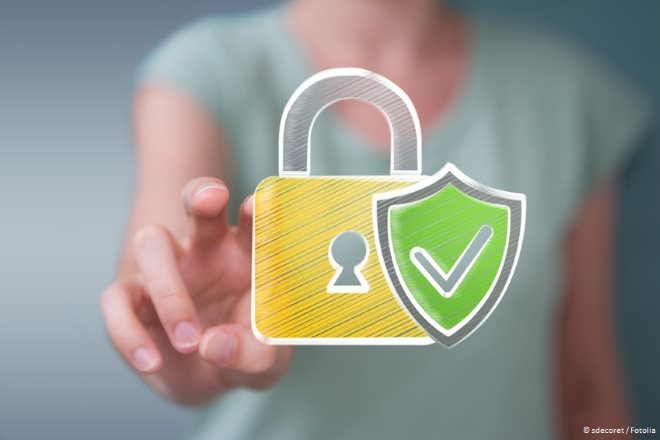Decentralized Digital Identity: Revolutionizing Online Authentication
The digital world is evolving rapidly, and with it comes the need for more secure and user-centric methods of online authentication. Enter decentralized digital identity – a groundbreaking approach that promises to reshape how we verify ourselves online. This innovative concept leverages blockchain technology and cryptography to give individuals unprecedented control over their personal information. But what exactly is decentralized digital identity, and how will it impact our online interactions?

Traditional identity systems are plagued by several issues:
-
Data breaches: Centralized databases are prime targets for hackers, putting millions of users at risk.
-
Identity theft: Stolen credentials can lead to financial fraud and reputational damage.
-
Lack of user control: Users often have limited say in how their data is stored, used, or shared.
-
Privacy concerns: Many services collect and monetize user data without explicit consent.
-
Inefficient verification processes: Repetitive KYC (Know Your Customer) procedures waste time and resources.
These challenges have paved the way for a new paradigm in digital identity management.
Understanding Decentralized Digital Identity
Decentralized digital identity, also known as self-sovereign identity (SSI), is a model where individuals have complete ownership and control over their digital identities. Instead of relying on centralized authorities to store and verify personal information, users maintain their own identity data and choose when and how to share it.
Key components of decentralized digital identity include:
-
Decentralized Identifiers (DIDs): Unique, user-generated identifiers that are independent of any central authority.
-
Verifiable Credentials: Digital attestations of claims about an individual, issued by trusted entities.
-
Blockchain technology: A distributed ledger that securely stores and manages identity-related data.
-
Zero-knowledge proofs: Cryptographic methods that allow users to prove certain attributes without revealing unnecessary information.
This approach offers numerous benefits, including enhanced privacy, improved security, and streamlined authentication processes across various platforms and services.
The Technology Behind Decentralized Digital Identity
At the heart of decentralized digital identity lies blockchain technology. Unlike traditional databases, blockchains are distributed, immutable, and transparent. This makes them ideal for storing and managing sensitive identity information.
Here’s how the technology works:
-
Users create their own DIDs, which are stored on the blockchain.
-
Verifiable credentials are issued by trusted entities (e.g., governments, educational institutions) and cryptographically signed.
-
Users store their credentials in digital wallets, maintaining full control over their data.
-
When authentication is required, users can selectively share relevant information without revealing their entire identity.
The use of zero-knowledge proofs allows for minimal disclosure, enabling users to prove specific attributes (e.g., age, citizenship) without sharing unnecessary personal details.
Real-World Applications and Use Cases
Decentralized digital identity has the potential to transform various industries and services:
-
Financial services: Simplify KYC processes, reduce fraud, and enable seamless cross-border transactions.
-
Healthcare: Securely manage patient records and streamline information sharing between providers.
-
Education: Issue and verify academic credentials, facilitating lifelong learning and career advancement.
-
Government services: Enhance citizen identity management and improve access to public services.
-
E-commerce: Provide secure, frictionless user experiences while protecting consumer privacy.
For example, a student could receive a digital diploma from their university, store it in their identity wallet, and easily share it with potential employers without the need for time-consuming verification processes.
Challenges and Considerations
While decentralized digital identity offers numerous benefits, several challenges must be addressed for widespread adoption:
-
Interoperability: Ensuring different identity systems can work together seamlessly.
-
Scalability: Developing infrastructure capable of handling millions of transactions.
-
User experience: Creating intuitive interfaces for managing digital identities.
-
Regulatory compliance: Aligning with existing data protection laws and regulations.
-
Trust and adoption: Building confidence in the system among users and service providers.
Additionally, the transition from centralized to decentralized systems will require significant coordination between governments, businesses, and technology providers.
The Road Ahead: Shaping the Future of Digital Identity
As decentralized digital identity continues to evolve, we can expect to see:
-
Increased collaboration between public and private sectors to establish standards and best practices.
-
Integration of biometric authentication methods for enhanced security.
-
Development of user-friendly identity management tools and applications.
-
Expansion of use cases beyond authentication, such as digital voting and smart contracts.
-
Greater emphasis on privacy-preserving technologies in identity solutions.
The journey towards widespread adoption of decentralized digital identity will be complex, but the potential benefits for individuals, businesses, and society as a whole are immense.
Conclusion
Decentralized digital identity represents a paradigm shift in how we manage and authenticate our online personas. By putting users in control of their personal information and leveraging advanced cryptographic techniques, this innovative approach promises to enhance privacy, security, and convenience in the digital realm. As the technology matures and adoption grows, we can look forward to a future where our online interactions are more secure, efficient, and user-centric than ever before.





